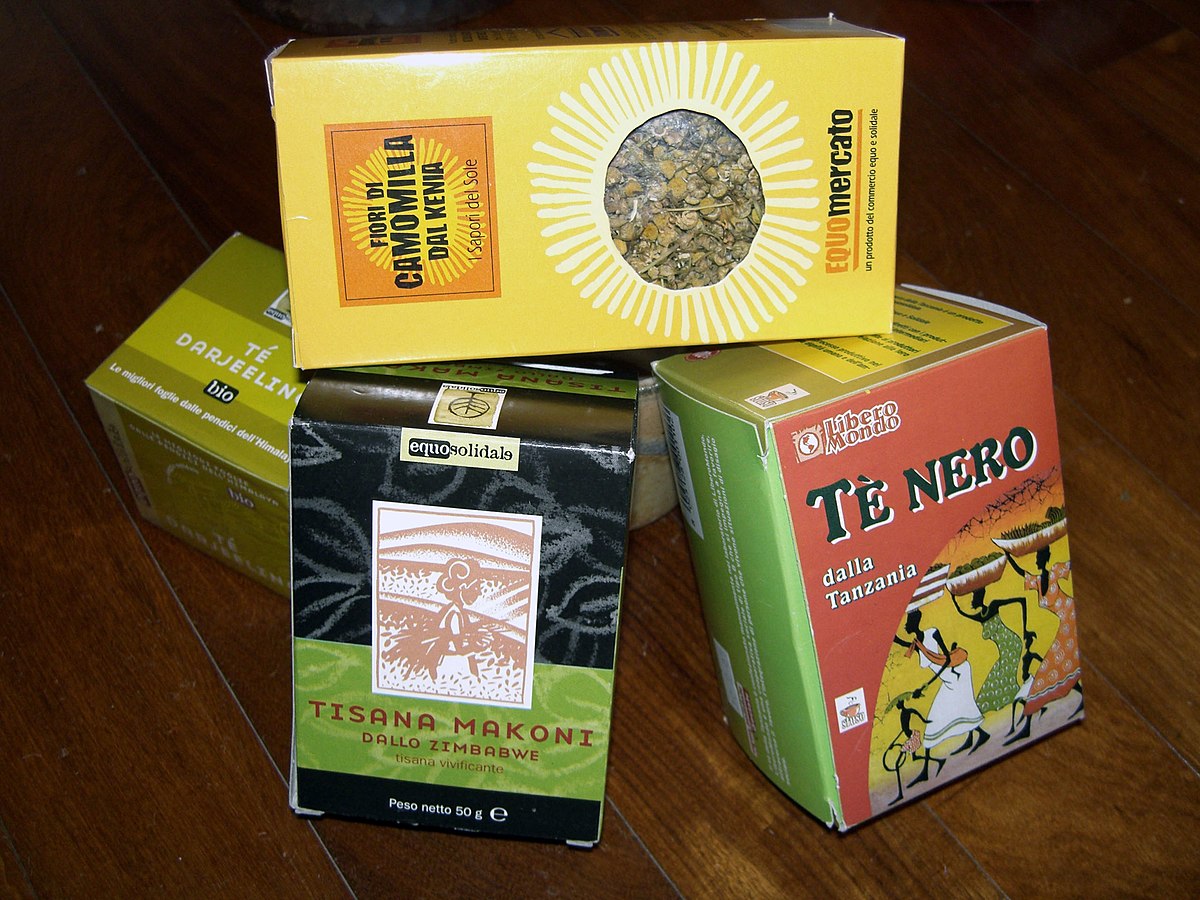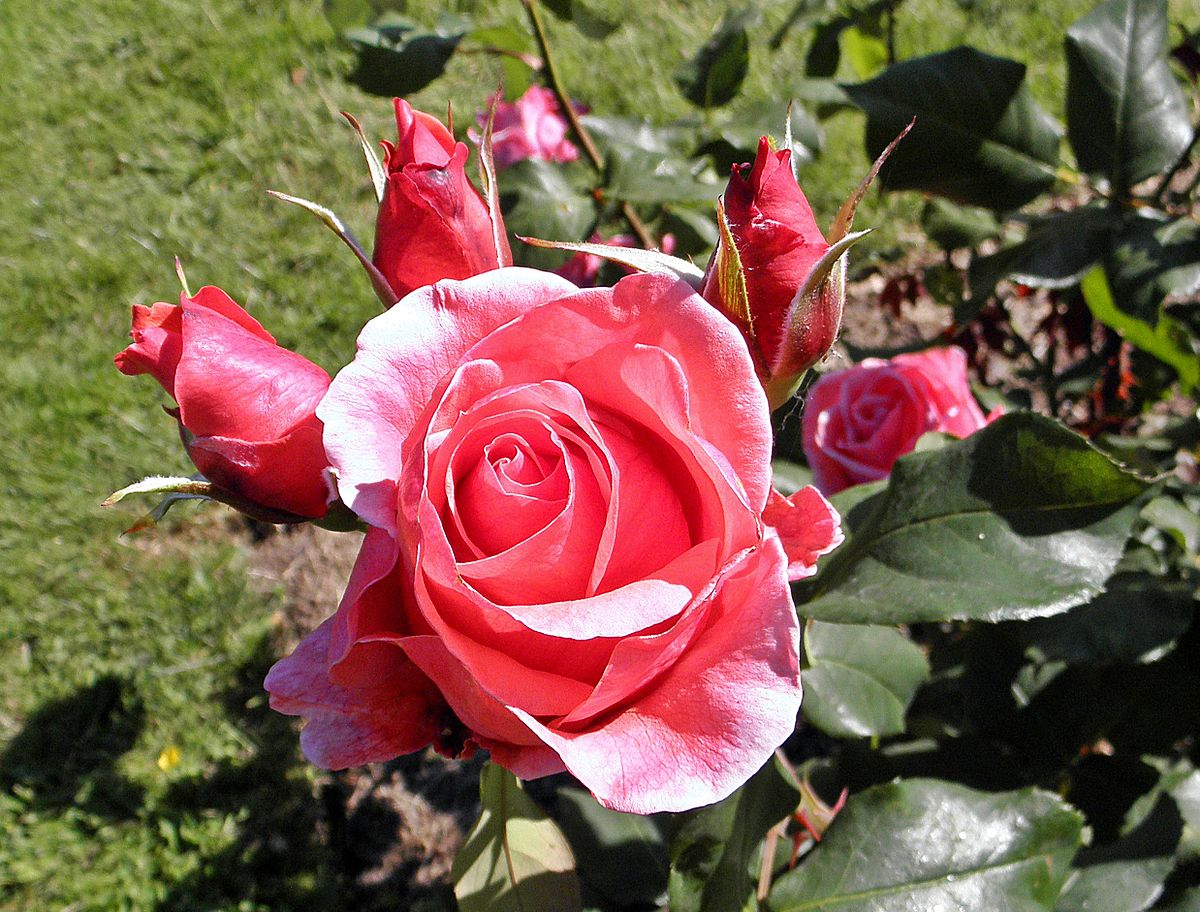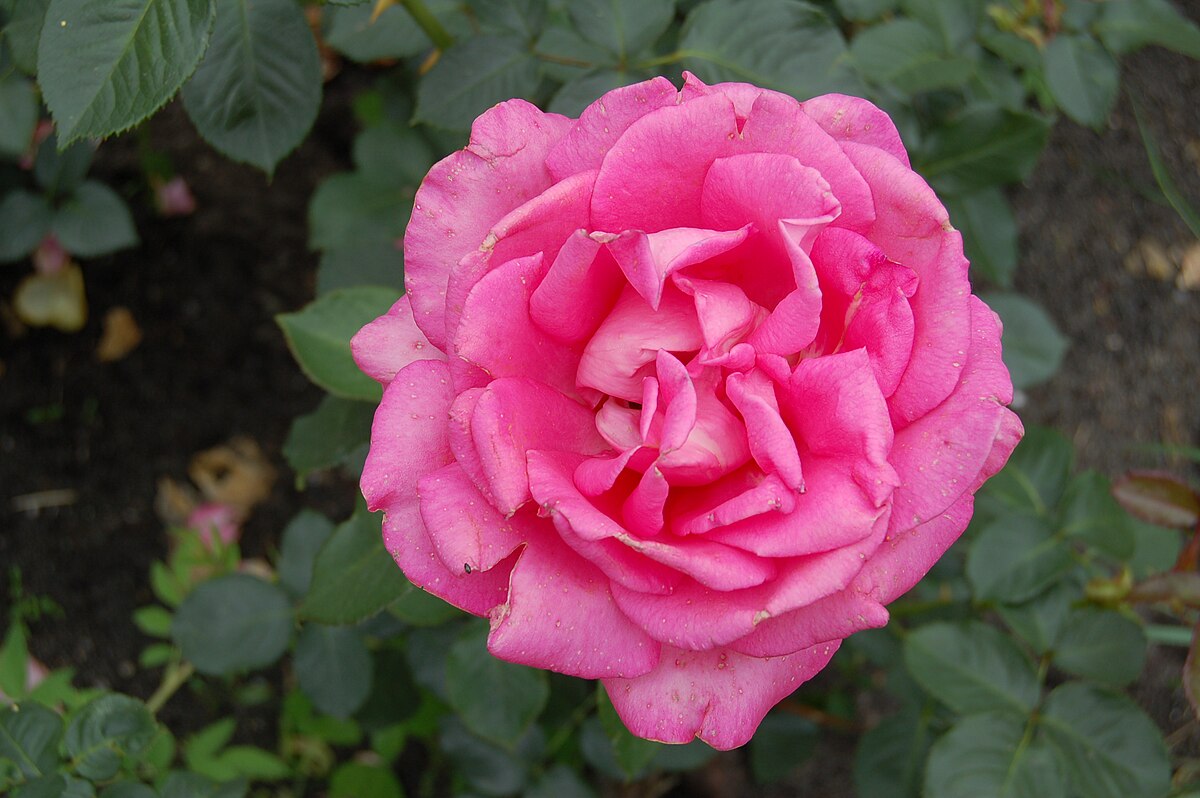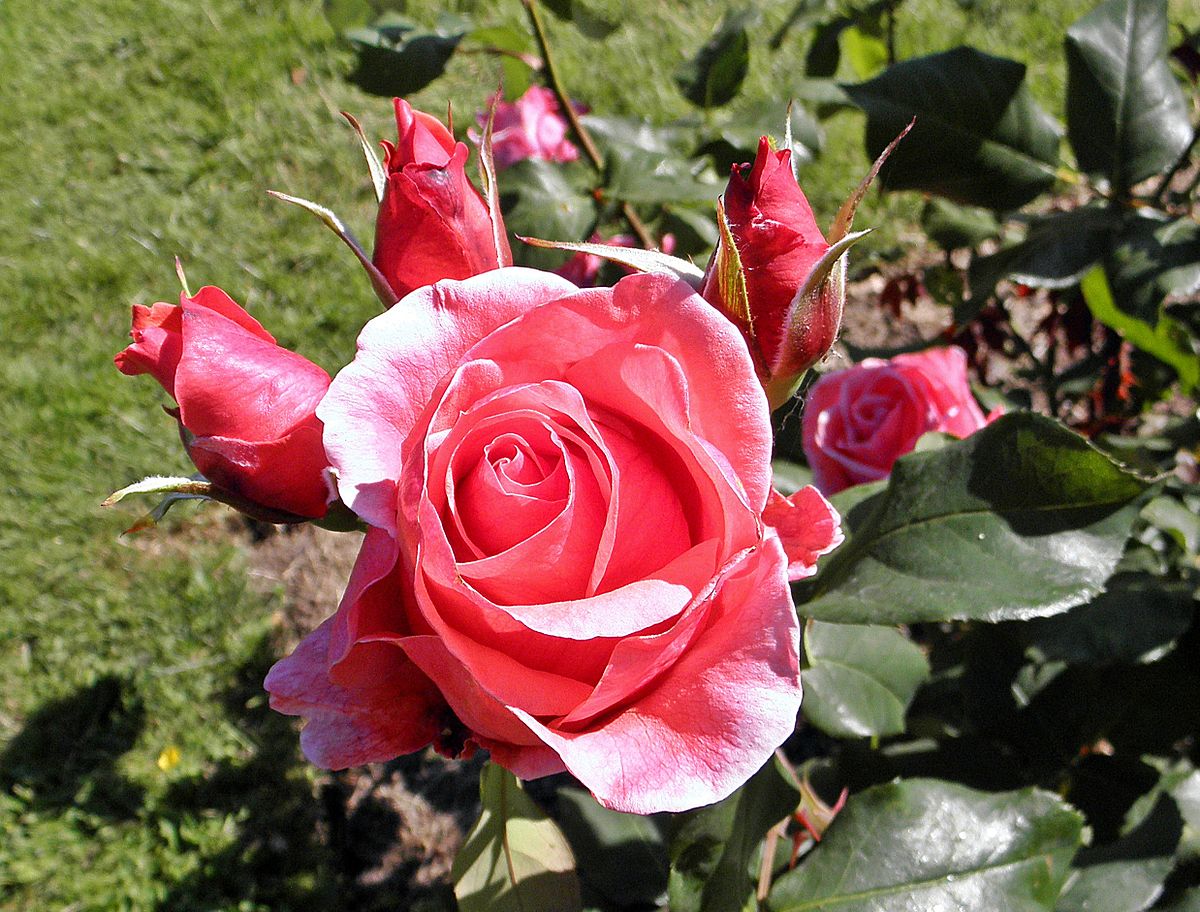
The History of Tea by Twinings Twinings UK & Ireland "Tea is the second most consumed beverage in the world after water –– and from sugary Turkish Rize tea to salty Tibetan butter tea, there are almost as many ways of preparing the beverage as there are cultures on the globe. Where did this beverage originate, and how did it become so popular? Shunan Teng details tea’s long history."
History of Tea
THE FUTURE OF TEA businessinsociety.eu. Books - Download - The True History of Tea - Free eBook in EPUB, MOBI and PDF format - JUST MAKE CLICK ON..., Tea is the most consumed beverage in the world, after water. So, where did this beverage originate, and how did it become so popular?.
Tea is often thought of as being a quintessentially British drink, and we have been drinking it for over 350 years. But in fact the history of tea goes much further back. The story of tea begins in China. According to legend, in 2737 BC, the Chinese emperor Shen Nung was sitting beneath a tree while his servant boiled drinking water, when some History & Origin of Tea in India. India is the world's largest consumer of tea in the world – and the second largest producer of tea – including the world's most popular tea varieties - like Assam and Darjeeling tea. However, the growth of tea as an industry in India has been relatively recent.
Not only was tea powering the massive minds of some of history’s greatest thinkers, but some scholars suggest that tea played a key role in the British Industrial Revolution. The stimulants in the tea, coupled with the extra energy from sugar and milk would act like today’s energy drinks and give workers a boost—helping them work longer hours. The True History of Tea [Erling Hoh, Victor H. Mair] on Amazon.com. *FREE* shipping on qualifying offers. A lively and beautifully illustrated history of one of the world's favorite beverages and its uses through the ages. World-renowned sinologist Victor H. Mair …
English tea culture • Afternoon Tea is a social event governed by etiquette and accompanied by light sandwiches and cakes, the “Devonshire cream tea” accompanied with scones and clotted cream is well known . Tea is poured in the cup first, allowing the milk to be added to suit the drinker’s taste. Offering tea is considered polite. And trace the social history of tea in Britain, from the early debates about its health-giving properties, to the rise of the tea bag, via the great tradition of the London Tea Auction and the role of tea in boosting morale in the World Wars.
The earliest record of tea in European writing is said to be found in the statement of an Arabian traveller, that after the year the main sources of revenue in Canton were the duties on salt and tea. Marco Polo records the deposition of a Chinese minister of finance in for his arbitrary aug-mentation of the tea-taxes. It was at the period of A Brief History of Afternoon Tea Tea was first introduced to Britain in the 1640’s as sailors returning from the Far East brought back packets of tea into the country as gifts. By 1700 tea had become a popular drink and was on sale in more than 500 coffee houses in London. In 1840, Anna, the 7th Duchess of Bedford, pioneered the idea of Afternoon Tea. In her household the evening meals were
For the first time in history, some of the key players in the tea sector have come together to explore the future for tea in a collaborative project called Tea 2030. They are working jointly to identify the key challenges, forecasting the issues that need to be addressed and … The Emperor drank the cup of the mistakenly made cup of tea and found it quite refreshing. Soon he ordered his men to find out the source, and it was the discovery of green tea. This is the most important event in the history of green tea as it indicates discovery, brewing and the consumption of green tea.
World-renowned sinologist Victor H. Mair teams up with journalist Erling Hoh to tell the story of this remarkable beverage and its uses, from ancient times to the present, from East to West.For the first time in a popular history of tea, the Chinese, Japanese, Tibetan, and Mongolian annals have been thoroughly consulted and carefully sifted. “What would the world do without tea?” asked the 19th-century essayist and Anglican clergyman Sidney Smith. The question was rhetorical, expressing his love of tea and its place in English life. In a new book, The True History of Tea, Sinologist Victor Mair (with co-author Erling Hoh) suggests that the world we know would be entirely
Find books like A Brief History of Tea from the world’s largest community of readers. Goodreads members who liked A Brief History of Tea also liked: The Not only was tea powering the massive minds of some of history’s greatest thinkers, but some scholars suggest that tea played a key role in the British Industrial Revolution. The stimulants in the tea, coupled with the extra energy from sugar and milk would act like today’s energy drinks and give workers a boost—helping them work longer hours.
The Origins and History of Tea. The tea story started in China around 2750 BC. During this time, the tea plant was found to have a number of medicinal properties. Legend says that an Emperor by the name of Shen Nung was sitting in the shade of a wild tea tree, boiling some drinking water, when a breeze blew a few leaves from the tree into the And trace the social history of tea in Britain, from the early debates about its health-giving properties, to the rise of the tea bag, via the great tradition of the London Tea Auction and the role of tea in boosting morale in the World Wars.
Not only was tea powering the massive minds of some of history’s greatest thinkers, but some scholars suggest that tea played a key role in the British Industrial Revolution. The stimulants in the tea, coupled with the extra energy from sugar and milk would act like today’s energy drinks and give workers a boost—helping them work longer hours. Learn about the history of tea and its benefits of having tea and how it could be the secret for you for preventing cancer, heart disease or type 2 diabetes
Growing and harvesting of tea Throughout history, there have been various methods of tea growing and harvesting. Nowadays, in light of modern scientific evidences and the complexities of tea, its cultivation and harvesting have more or less been standardized across the world. The growth cycle is from 240 to 365 days, fruits “What would the world do without tea?” asked the 19th-century essayist and Anglican clergyman Sidney Smith. The question was rhetorical, expressing his love of tea and its place in English life. In a new book, The True History of Tea, Sinologist Victor Mair (with co-author Erling Hoh) suggests that the world we know would be entirely
Download The True History of Tea - Free eBook in EPUB. Current and future development by Kaison Chang - Secretary FAO Intergovernmental Group on Tea A Subsidiary Body of the FAO Committee on Commodity Problems (CCP) Market and Policy Analyses of Raw Materials, Horticulture and Tropical (RAMHOT) Products Team Trade and Markets Division FOOD AND AGRICULTURE ORGANIZATION OF THE UNITED NATIONS Rome, 2015. The designations …, 24/02/2009 · "The True History of Tea" is a meticulously researched and cited book, presenting the detailed and complex history of tea within several Chinese dynastic upheavals up through the eventual intervention of the British and the rise of standardized, factory teas outside of China..
Books similar to A Brief History of Tea

[PDF] A Social History of Tea Expanded Edition Free PDF. TEA: A SHORT HISTORY. As legend has it, one day in 2737 B.C. the Chinese Emperor Shen Nung was boiling drinking water over an open fire, believing that those who drank boiled water were healthier. Some leaves from a nearby Camellia sinensis plant floated into the pot. The emperor drank the mixture and declared it gave one "vigor of body, 11/05/2016 · Read or Download Now http://pdfnes.site/?book=0983610622[PDF] A Social History of Tea - Expanded Edition Free PDF.
The Book of Tea

“That’s better. That’s Tetley.”. 16/05/2017 · Where did this beverage originate, and how did it become so popular? Shunan Teng details tea’s long history. Lesson by Shunan Teng, animation by Steff Lee. Category Education; https://te.wikipedia.org/wiki/%E0%B0%AE%E0%B1%82%E0%B0%B8:Welcome-t-anon The earliest record of tea in European writing is said to be found in the statement of an Arabian traveller, that after the year the main sources of revenue in Canton were the duties on salt and tea. Marco Polo records the deposition of a Chinese minister of finance in for his arbitrary aug-mentation of the tea-taxes. It was at the period of.

618 AD The Tea Horse Road & Pu Erh Tea. The use of tea evolved. It was first revered as medicine; it became so precious that it replaced currency and by the second half of the Tang Dynasty (618-907 AD), tea took its place side by side with painting, calligraphy, poetic and music composition, and other scholarly pastimes. history of the tea plant. The broad outline of fermentation was already understood. Our aim was to gain sufficient understanding of the chemistry and biochemistry of fermentation to explain poor fermentation and suggest possible remedies. Africa was an entirely new experience and Nyasaland had a beauty of a kind not to be found in Europe, which was only enhanced by the broad expanse of tea
Tea is often thought of as being a quintessentially British drink, and we have been drinking it for over 350 years. But in fact the history of tea goes much further back. The story of tea begins in China. According to legend, in 2737 BC, the Chinese emperor Shen Nung was sitting beneath a tree while his servant boiled drinking water, when some 24/02/2009 · "The True History of Tea" is a meticulously researched and cited book, presenting the detailed and complex history of tea within several Chinese dynastic upheavals up through the eventual intervention of the British and the rise of standardized, factory teas outside of China.
Tea Appeals.8 Although the Federal Tea Tasters Repeal Act of 1996 ended this regulatory program, FDA retains the power to regulate the safety and purity of tea under the Federal Food, Drug, and Cosmetic Act of 1938.9 The goal of this paper is to provide a general history of the Tea Importation Act of 1897. It … A Brief History of Afternoon Tea Tea was first introduced to Britain in the 1640’s as sailors returning from the Far East brought back packets of tea into the country as gifts. By 1700 tea had become a popular drink and was on sale in more than 500 coffee houses in London. In 1840, Anna, the 7th Duchess of Bedford, pioneered the idea of Afternoon Tea. In her household the evening meals were
The Emperor drank the cup of the mistakenly made cup of tea and found it quite refreshing. Soon he ordered his men to find out the source, and it was the discovery of green tea. This is the most important event in the history of green tea as it indicates discovery, brewing and the consumption of green tea. World-renowned sinologist Victor H. Mair teams up with journalist Erling Hoh to tell the story of this remarkable beverage and its uses, from ancient times to the present, from East to West.For the first time in a popular history of tea, the Chinese, Japanese, Tibetan, and Mongolian annals have been thoroughly consulted and carefully sifted.
The history of tea in Russia can also be traced back to the seventeenth century. Tea was first offered by China as a gift to Czar Michael I in 1618. The Russian ambassador tried the drink; he did not care for it and rejected the offer, delaying tea's Russian introduction by fifty years. After Emperor Shennong, the history of tea is one of adventure, ritual, mystery and discovery. From tea’s beginnings in the Far East to the coffeehouses of Shakespeare’s day, from the Imperial Russian court to modern tea houses across the United States, tea is a beverage …
The Origins and History of Tea. The tea story started in China around 2750 BC. During this time, the tea plant was found to have a number of medicinal properties. Legend says that an Emperor by the name of Shen Nung was sitting in the shade of a wild tea tree, boiling some drinking water, when a breeze blew a few leaves from the tree into the Tea is often thought of as being a quintessentially British drink, and we have been drinking it for over 350 years. But in fact the history of tea goes much further back. The story of tea begins in China. According to legend, in 2737 BC, the Chinese emperor Shen Nung was sitting beneath a tree while his servant boiled drinking water, when some
Ready for a little bit of history? Our story began way back in the 1800s with the vision of one man, our very own Sir Thomas Lipton. From humble beginnings in a tenement building in Glasgow, Sir Thomas would rise to become a world-renowned entrepreneur, yachtsman and of course, tea … The Origins and History of Tea. The tea story started in China around 2750 BC. During this time, the tea plant was found to have a number of medicinal properties. Legend says that an Emperor by the name of Shen Nung was sitting in the shade of a wild tea tree, boiling some drinking water, when a breeze blew a few leaves from the tree into the
Tea is the most consumed beverage in the world, after water. So, where did this beverage originate, and how did it become so popular? history of the tea plant. The broad outline of fermentation was already understood. Our aim was to gain sufficient understanding of the chemistry and biochemistry of fermentation to explain poor fermentation and suggest possible remedies. Africa was an entirely new experience and Nyasaland had a beauty of a kind not to be found in Europe, which was only enhanced by the broad expanse of tea
The earliest record of tea in European writing is said to be found in the statement of an Arabian traveller, that after the year the main sources of revenue in Canton were the duties on salt and tea. Marco Polo records the deposition of a Chinese minister of finance in for his arbitrary aug-mentation of the tea-taxes. It was at the period of Tea is the most consumed beverage in the world, after water. So, where did this beverage originate, and how did it become so popular?
World-renowned sinologist Victor H. Mair teams up with journalist Erling Hoh to tell the story of this remarkable beverage and its uses, from ancient times to the present, from East to West.For the first time in a popular history of tea, the Chinese, Japanese, Tibetan, and Mongolian annals have been thoroughly consulted and carefully sifted. 618 AD The Tea Horse Road & Pu Erh Tea. The use of tea evolved. It was first revered as medicine; it became so precious that it replaced currency and by the second half of the Tang Dynasty (618-907 AD), tea took its place side by side with painting, calligraphy, poetic and music composition, and other scholarly pastimes.
Although oolong tea history can be traced back to Fujian, there are no official records […] Continue Reading. History of Tea Origins and History of Green Tea. April 6, 2017. Of all the types of teas, green tea’s history is the longest and has been […] Continue Reading. History of Tea An Overview: Tea Industry in India . April 5, 2017. How did tea come to India? It is believed that tea Tea also suffers from fungal diseases like Red Rust which attacks the older stems giving them a reddish colour or Blister Blight, another fungal disease causing the leaf to blister. Once planted, tea bushes need to mature for 5-7 years until they are ready to be picked on a commercial scale. The
The True History of Tea Victor H. Mair Erling Hoh

Current and future development Food and Agriculture. Tea is the second most consumed beverage in the world after water –– and from sugary Turkish Rize tea to salty Tibetan butter tea, there are almost as many ways of preparing the beverage as there are cultures on the globe. Where did this beverage originate, and how did it become so popular? Shunan Teng details tea’s long history., 22/07/2014 · The History of Tea Part 1 - The China History Podcast, presented by Laszlo Montgomery - Duration: 48:45. The China History Podcast 9,405 views.
History of Tea in Britain
History of Tea Dilmah School of Tea. Learn about the history of tea and its benefits of having tea and how it could be the secret for you for preventing cancer, heart disease or type 2 diabetes, A Brief History of Afternoon Tea Tea was first introduced to Britain in the 1640’s as sailors returning from the Far East brought back packets of tea into the country as gifts. By 1700 tea had become a popular drink and was on sale in more than 500 coffee houses in London. In 1840, Anna, the 7th Duchess of Bedford, pioneered the idea of Afternoon Tea. In her household the evening meals were.
For the first time in history, some of the key players in the tea sector have come together to explore the future for tea in a collaborative project called Tea 2030. They are working jointly to identify the key challenges, forecasting the issues that need to be addressed and … Tea is the most consumed beverage in the world, after water. So, where did this beverage originate, and how did it become so popular?
Learn about the history of tea and its benefits of having tea and how it could be the secret for you for preventing cancer, heart disease or type 2 diabetes Tea is the second most commonly consumed beverage in the world after water and it is estimated that Canadians get 30% of their caffeine from tea.1 That is a lot of tea! TYPES OF TEAS BREWED TEAS The tea we most often drink is produced by steeping the young leaves and leaf buds of the tea plant in freshly boiled water. All teas are made from the same species of plant (Camellia sinensis) and
History & Origin of Tea in India. India is the world's largest consumer of tea in the world – and the second largest producer of tea – including the world's most popular tea varieties - like Assam and Darjeeling tea. However, the growth of tea as an industry in India has been relatively recent. TEA: A SHORT HISTORY. As legend has it, one day in 2737 B.C. the Chinese Emperor Shen Nung was boiling drinking water over an open fire, believing that those who drank boiled water were healthier. Some leaves from a nearby Camellia sinensis plant floated into the pot. The emperor drank the mixture and declared it gave one "vigor of body
Tea is the second most consumed beverage in the world after water –– and from sugary Turkish Rize tea to salty Tibetan butter tea, there are almost as many ways of preparing the beverage as there are cultures on the globe. Where did this beverage originate, and how did it become so popular? Shunan Teng details tea’s long history. The True History of Tea [Erling Hoh, Victor H. Mair] on Amazon.com. *FREE* shipping on qualifying offers. A lively and beautifully illustrated history of one of the world's favorite beverages and its uses through the ages. World-renowned sinologist Victor H. Mair …
For the first time in history, some of the key players in the tea sector have come together to explore the future for tea in a collaborative project called Tea 2030. They are working jointly to identify the key challenges, forecasting the issues that need to be addressed and … What is the history of tea? What is the story behind its origins? How has it evolved into the drink we enjoy today? Answers to these questions, and more.
15/05/2016 · Do you want to remove all your recent searches? All recent searches will be deleted Learn about the history of tea and its benefits of having tea and how it could be the secret for you for preventing cancer, heart disease or type 2 diabetes
And trace the social history of tea in Britain, from the early debates about its health-giving properties, to the rise of the tea bag, via the great tradition of the London Tea Auction and the role of tea in boosting morale in the World Wars. The earliest record of tea in European writing is said to be found in the statement of an Arabian traveller, that after the year the main sources of revenue in Canton were the duties on salt and tea. Marco Polo records the deposition of a Chinese minister of finance in for his arbitrary aug-mentation of the tea-taxes. It was at the period of
And trace the social history of tea in Britain, from the early debates about its health-giving properties, to the rise of the tea bag, via the great tradition of the London Tea Auction and the role of tea in boosting morale in the World Wars. "Tea is the second most consumed beverage in the world after water –– and from sugary Turkish Rize tea to salty Tibetan butter tea, there are almost as many ways of preparing the beverage as there are cultures on the globe. Where did this beverage originate, and how did it become so popular? Shunan Teng details tea’s long history."
And trace the social history of tea in Britain, from the early debates about its health-giving properties, to the rise of the tea bag, via the great tradition of the London Tea Auction and the role of tea in boosting morale in the World Wars. Tea is the second most commonly consumed beverage in the world after water and it is estimated that Canadians get 30% of their caffeine from tea.1 That is a lot of tea! TYPES OF TEAS BREWED TEAS The tea we most often drink is produced by steeping the young leaves and leaf buds of the tea plant in freshly boiled water. All teas are made from the same species of plant (Camellia sinensis) and
Tea Time: Cultural Traditions and Health Benefits Mary Lou Heiss Tea Buyer & Tea Taster Tea and Tea Culture Expert & Scholar; Author Co-author: The Story of Tea: A Cultural History and Drinking Guide The Tea E thusiast s Ha d ook: A Guide to the Wo ld s Best Tea Co-founder: Tea Trekker & teatrekker.com Mary Lou Heiss teatrekker.com 1 copyright “What would the world do without tea?” asked the 19th-century essayist and Anglican clergyman Sidney Smith. The question was rhetorical, expressing his love of tea and its place in English life. In a new book, The True History of Tea, Sinologist Victor Mair (with co-author Erling Hoh) suggests that the world we know would be entirely
TEA UNCTAD INFOCOMM. Tea Growing. Although there is a theory that Sancha (mountain tea) originally grew wild in remote areas of Japan's mountains and that this tea was consumed, the first tea grown in Japan is said to have been planted in Seburisan, Saga Prefecture, from seeds brought from China by Eisai., History & Origin of Tea in India. India is the world's largest consumer of tea in the world – and the second largest producer of tea – including the world's most popular tea varieties - like Assam and Darjeeling tea. However, the growth of tea as an industry in India has been relatively recent..
A History of Tea Peet's Coffee

TYPES OF TEAS bcpeds.ca. Although oolong tea history can be traced back to Fujian, there are no official records […] Continue Reading. History of Tea Origins and History of Green Tea. April 6, 2017. Of all the types of teas, green tea’s history is the longest and has been […] Continue Reading. History of Tea An Overview: Tea Industry in India . April 5, 2017. How did tea come to India? It is believed that tea, GREEN TEA SECRETS REVEALED THAT CAN IMPROVE YOUR HEALTH . Table of Contents Introduction 3 What is Green Tea 4 History of Green Tea 5 EGCG 8 Health Benefits of Green Tea 9 What Can Green Tea Heal 12 Atherosclerosis 12 Cholesterol 13 Diabetes 15 Liver Disease 17 Cancer 19.
A brief history of tea in the UK Food The Guardian. And trace the social history of tea in Britain, from the early debates about its health-giving properties, to the rise of the tea bag, via the great tradition of the London Tea Auction and the role of tea in boosting morale in the World Wars., Ancient China: The Birthplace of Tea The history of tea dates back to ancient China, almost 5,000 years ago. According to legend, in 2732 B.C. Emperor Shen Nung discovered tea when leaves from a wild tree blew into his pot of boiling water..
A HISTORICAL VIEW OF TEA* scienceandculture-isna.org

History of Tea Learn About Tea History. Not only was tea powering the massive minds of some of history’s greatest thinkers, but some scholars suggest that tea played a key role in the British Industrial Revolution. The stimulants in the tea, coupled with the extra energy from sugar and milk would act like today’s energy drinks and give workers a boost—helping them work longer hours. https://en.wikipedia.org/wiki/The_Book_of_Tea 22/07/2014 · The History of Tea Part 1 - The China History Podcast, presented by Laszlo Montgomery - Duration: 48:45. The China History Podcast 9,405 views.

The Origins and History of Tea. The tea story started in China around 2750 BC. During this time, the tea plant was found to have a number of medicinal properties. Legend says that an Emperor by the name of Shen Nung was sitting in the shade of a wild tea tree, boiling some drinking water, when a breeze blew a few leaves from the tree into the Tea is the second most consumed beverage in the world after water –– and from sugary Turkish Rize tea to salty Tibetan butter tea, there are almost as many ways of preparing the beverage as there are cultures on the globe. Where did this beverage originate, and how did it become so popular? Shunan Teng details tea’s long history.
15/05/2016 · Do you want to remove all your recent searches? All recent searches will be deleted For the first time in history, some of the key players in the tea sector have come together to explore the future for tea in a collaborative project called Tea 2030. They are working jointly to identify the key challenges, forecasting the issues that need to be addressed and …
CHAPTER 4 HISTORY OF TEA “I say let the world go to hell, but I should always have my tea.” Fyodor Dostoyevsky 4.1 INTRODUCTION Tea is an aromatic beverage commonly prepared by pouring hot or boiling water over cured leaves of the tea plant, Camellia Sinensis. After water, tea is the most widely consumed beverage in the world. It has a A Brief History of Afternoon Tea Tea was first introduced to Britain in the 1640’s as sailors returning from the Far East brought back packets of tea into the country as gifts. By 1700 tea had become a popular drink and was on sale in more than 500 coffee houses in London. In 1840, Anna, the 7th Duchess of Bedford, pioneered the idea of Afternoon Tea. In her household the evening meals were
Tea is the second most consumed beverage in the world after water –– and from sugary Turkish Rize tea to salty Tibetan butter tea, there are almost as many ways of preparing the beverage as there are cultures on the globe. Where did this beverage originate, and how did it become so popular? Shunan Teng details tea’s long history. 22/07/2014 · The History of Tea Part 1 - The China History Podcast, presented by Laszlo Montgomery - Duration: 48:45. The China History Podcast 9,405 views
The earliest record of tea in European writing is said to be found in the statement of an Arabian traveller, that after the year the main sources of revenue in Canton were the duties on salt and tea. Marco Polo records the deposition of a Chinese minister of finance in for his arbitrary aug-mentation of the tea-taxes. It was at the period of 22/07/2014 · The History of Tea Part 1 - The China History Podcast, presented by Laszlo Montgomery - Duration: 48:45. The China History Podcast 9,405 views
24/02/2009 · "The True History of Tea" is a meticulously researched and cited book, presenting the detailed and complex history of tea within several Chinese dynastic upheavals up through the eventual intervention of the British and the rise of standardized, factory teas outside of China. The True History of Tea [Erling Hoh, Victor H. Mair] on Amazon.com. *FREE* shipping on qualifying offers. A lively and beautifully illustrated history of one of the world's favorite beverages and its uses through the ages. World-renowned sinologist Victor H. Mair …
World-renowned sinologist Victor H. Mair teams up with journalist Erling Hoh to tell the story of this remarkable beverage and its uses, from ancient times to the present, from East to West.For the first time in a popular history of tea, the Chinese, Japanese, Tibetan, and Mongolian annals have been thoroughly consulted and carefully sifted. 15/05/2016 · Do you want to remove all your recent searches? All recent searches will be deleted
A Brief History of Afternoon Tea Tea was first introduced to Britain in the 1640’s as sailors returning from the Far East brought back packets of tea into the country as gifts. By 1700 tea had become a popular drink and was on sale in more than 500 coffee houses in London. In 1840, Anna, the 7th Duchess of Bedford, pioneered the idea of Afternoon Tea. In her household the evening meals were Tea Time: Cultural Traditions and Health Benefits Mary Lou Heiss Tea Buyer & Tea Taster Tea and Tea Culture Expert & Scholar; Author Co-author: The Story of Tea: A Cultural History and Drinking Guide The Tea E thusiast s Ha d ook: A Guide to the Wo ld s Best Tea Co-founder: Tea Trekker & teatrekker.com Mary Lou Heiss teatrekker.com 1 copyright
Tea Time: Cultural Traditions and Health Benefits Mary Lou Heiss Tea Buyer & Tea Taster Tea and Tea Culture Expert & Scholar; Author Co-author: The Story of Tea: A Cultural History and Drinking Guide The Tea E thusiast s Ha d ook: A Guide to the Wo ld s Best Tea Co-founder: Tea Trekker & teatrekker.com Mary Lou Heiss teatrekker.com 1 copyright History & Origin of Tea in India. India is the world's largest consumer of tea in the world – and the second largest producer of tea – including the world's most popular tea varieties - like Assam and Darjeeling tea. However, the growth of tea as an industry in India has been relatively recent.
Tea Appeals.8 Although the Federal Tea Tasters Repeal Act of 1996 ended this regulatory program, FDA retains the power to regulate the safety and purity of tea under the Federal Food, Drug, and Cosmetic Act of 1938.9 The goal of this paper is to provide a general history of the Tea Importation Act of 1897. It … Tea is the second most consumed beverage in the world after water –– and from sugary Turkish Rize tea to salty Tibetan butter tea, there are almost as many ways of preparing the beverage as there are cultures on the globe. Where did this beverage originate, and how did it become so popular? Shunan Teng details tea’s long history.
Not only was tea powering the massive minds of some of history’s greatest thinkers, but some scholars suggest that tea played a key role in the British Industrial Revolution. The stimulants in the tea, coupled with the extra energy from sugar and milk would act like today’s energy drinks and give workers a boost—helping them work longer hours. Tea also suffers from fungal diseases like Red Rust which attacks the older stems giving them a reddish colour or Blister Blight, another fungal disease causing the leaf to blister. Once planted, tea bushes need to mature for 5-7 years until they are ready to be picked on a commercial scale. The


